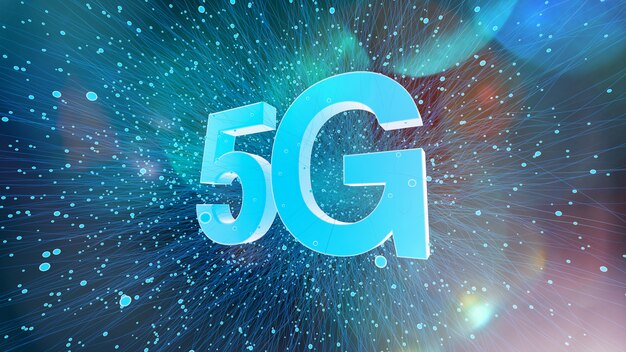The advent of 5G technology is heralding a new era in connectivity that promises to revolutionize not only communication but also business and innovation across multiple sectors. With its potential to deliver faster internet speeds, greater bandwidth, and ultra-low latency, 5G is poised to reshape how we interact with technology, engage in business activities, and innovate on a global scale. This article delves into how 5G is transforming these key areas and why it is crucial to embrace this game-changing technology.
The Impact of 5G on Communication
Communication is the cornerstone of human interaction, and with 5G technology, it is set to become faster, more efficient, and more seamless than ever before. One of the most noticeable improvements is in mobile data speeds. 5G networks are capable of speeds that are up to 100 times faster than the current 4G networks. This means that users will experience nearly instantaneous downloads, real-time streaming of high-definition content, and a reduction in lag during voice or video calls.
Beyond mobile phones, 5G is transforming other communication devices as well. Internet of Things (IoT) devices, smart homes, wearables, and autonomous vehicles are becoming more connected, requiring fast, reliable, and low-latency communication. 5G’s ability to handle a massive influx of connected devices will be critical in supporting these innovations.
5G and Its Impact on Business
The influence of 5G on businesses is profound, opening new avenues for growth, productivity, and operational efficiency. One of the key benefits for businesses is the ability to leverage faster data transfer speeds. For industries like healthcare, manufacturing, logistics, and retail, 5G allows for real-time data analysis, which can help in decision-making, improving customer experiences, and streamlining operations.
In manufacturing, for instance, 5G can support automation systems that rely on real-time data for optimization. Similarly, in healthcare, telemedicine and remote surgery can benefit from 5G’s low latency, enabling healthcare professionals to operate machinery and provide care remotely with minimal delay. Retail businesses can enhance customer service through faster transactions, augmented reality experiences, and more responsive digital platforms.
Additionally, 5G enables the development of new business models. The ability to implement technologies such as edge computing, which processes data closer to the source, ensures that businesses can respond to challenges with unprecedented agility. Moreover, 5G opens the door to the mass adoption of artificial intelligence (AI) and machine learning (ML), helping businesses refine customer service, inventory management, and predictive analytics.
Fostering Innovation Across Industries
One of the most exciting aspects of 5G is its potential to drive innovation. With its high-speed, low-latency capabilities, 5G can fuel the development of groundbreaking technologies and solutions across industries. Autonomous vehicles, for instance, require real-time communication between sensors and the cloud to safely navigate roads. 5G’s ultra-low latency is crucial in enabling this technology to operate safely and efficiently.
Similarly, augmented reality (AR) and virtual reality (VR) are poised for a major leap forward with 5G. The speed and responsiveness of 5G will allow AR and VR applications to work in real time without lags or buffering, transforming industries such as gaming, entertainment, real estate, and education.
Smart cities are another area where 5G is expected to drive innovation. From reducing traffic congestion to enhancing energy efficiency, 5G will support the massive networks of IoT devices that form the backbone of smart city infrastructure, enabling faster communication and automation.
7 Frequently Asked Questions About 5G Technology
- What is 5G? 5G is the fifth generation of mobile network technology, following 4G. It promises faster data speeds, greater bandwidth, and ultra-low latency, enabling new applications like autonomous driving, virtual reality, and IoT devices.
- How fast is 5G? 5G can theoretically reach speeds up to 100 times faster than 4G, with download speeds potentially exceeding 10 gigabits per second.
- What industries will benefit the most from 5G? 5G will benefit a wide range of industries, including healthcare, manufacturing, logistics, retail, entertainment, and transportation, with particular focus on real-time data processing and connectivity.
- How does 5G improve communication? 5G reduces latency (the delay between sending and receiving data), increases download and upload speeds, and supports a much higher number of connected devices, ensuring smoother communication experiences.
- Is 5G available everywhere? 5G networks are being gradually rolled out across the globe. While some cities and regions have access, the availability of 5G varies depending on the country and network infrastructure.
- What are the security concerns with 5G? As with any new technology, 5G presents certain security challenges, particularly around the increased number of connected devices and the potential for cyber threats. Ensuring robust encryption and secure protocols will be crucial.
- How will 5G impact everyday life? 5G will make everyday life more efficient, allowing for faster internet connections, improved remote work capabilities, better communication, and enhanced smart home functionalities.
Conclusion
5G technology is poised to have a transformative effect on communication, business, and innovation. By enabling faster internet speeds, lower latency, and greater connectivity, 5G is not just an upgrade to mobile networks—it is a game-changer that will pave the way for technological advancements and new business models. While the widespread adoption of 5G is still unfolding, its potential is undeniable, and embracing it now will allow businesses and individuals to capitalize on the opportunities it offers.
Key Takeaways
- 5G offers faster data speeds, reduced latency, and increased device connectivity.
- It promises to revolutionize sectors like healthcare, manufacturing, and retail by improving efficiency and enabling new business models.
- The innovation unleashed by 5G could reshape industries such as autonomous vehicles, AR/VR, and smart cities.
- Widespread 5G adoption will drive the growth of IoT, edge computing, and AI/ML applications.
- Although 5G is not yet universally available, its future potential is vast and will lead to major breakthroughs in technology and communication.

